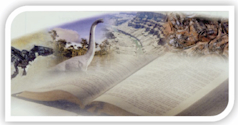
In the beginning was the Word, and the Word was with God
and the Word was God. He was in the beginning with God. John 1:1-2

|
Bible Maps Plus
In the beginning was the Word, and the Word was with God and the Word was God. He was in the beginning with God. John 1:1-2 |
| HOME | Maps | Booklets | Teaching Resources | Stable Maps/Outlines | Miscellaneous | Paul | Articles | Cool Strokes | Points to Ponder |